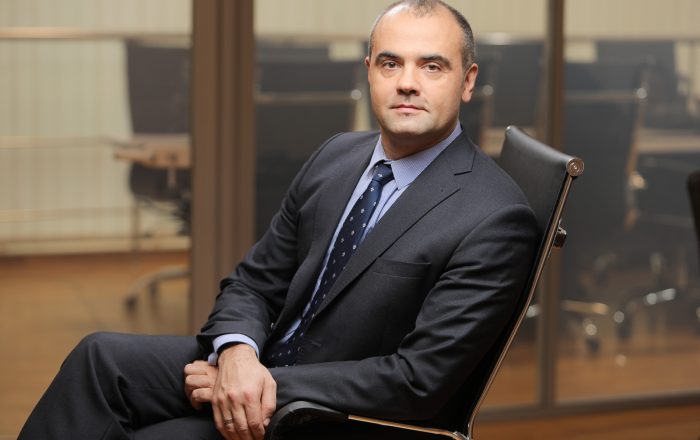December 09, 2020, Kyiv – Sergiy Makogon, CEO of OGTSU, participated in an online discussion on the future of transatlantic energy cooperation organized by the analytical centre German Marshall Fund of the United States (GMF) on December 8th, 2020. As an invited representative from Ukraine Mr Makogon voiced the opinion on the risks of completion of Nord Stream 2 and extension of Turkish Stream. Also, in his speech Mr Makogon focused on three important aspects that are fundamental for the development of the energy sector in the region: energy security, diversification of gas sources and energy transition.
He pointed out that Ukraine’s role is critical to European energy security, and the Ukrainian GTS is part of the European energy system, although the country itself is not yet a member of the EU. Mr Makogon also stressed that diversification of gas sources, as a prerequisite for energy security, should not be substituted by diversification of pipelines.
“It is in the best mutual interest of the transatlantic community to ensure that there is no country that is too dependent on imports of Russian energy resources. In this context, cancelling Nord Stream 2 and continuing the transit of Russian gas across Ukraine is not a financial issue, but a matter of maintaining European unity,” added Sergiy Makogon, CEO of OGTSU.
Adam Kinzinger, a member of the U.S. House of Representatives, supported this position. He emphasized the importance of the issue of Europe’s energy security, as well as Ukraine’s role in ensuring it. The representative of the U.S. Congress noted that the construction of Nord Stream 2 is a threat for the region. Adam Kinzinger announced the imposition of economic sanctions against the companies participating in the construction of the Russian pipeline that would to be spelled out in the NDAA (National Defense Authorization Act): “In 2021 it (NDDA) will include organizations that will support the construction of Nord Stream. That is, European companies willing to make money on Nord Stream 2 won’t be able to do so”.
He also confirmed that sanctions would not only affect Nord Stream 2, but also Turkish Stream – Russia’s bypass pipelines
“We value the U.S. comprehensive approach for ensuring energy security and security of Europe as a whole. This is a key focus in transatlantic relations and in shaping the policy regarding Russia in order to strengthen European unity and NATO,” said Jacek Saryusz-Wolski, the member of the European Parliament.
Besides, Mr. Saryusz-Wolski added that the widespread opinion about the support of Nord Stream-2 in Europe was not really truthful: “The majority of EU member states are opposing Nord Stream-2, the majority in the European Parliament say that this project is harmful for Europe, as well as the European Commission, as an organization, has been against Nord Stream-2 from the very beginning. There is no overwhelming majority supporting this project in Europe.”
Sarah Pagung, a representative of the German Council on Foreign Relations, noted that the predicted cost savings could not be taken as a strong justification for supporting Nord Stream-2: “We have analyzed several models for calculating the price of gas that will be delivered to Germany through Nord Stream-2 and the traditional route (Ukraine, Belarus, Poland). Nord Stream 2 offers some savings, but the difference is minimal. It is unclear whether it should be constructed at all.”
At the end of the meeting, Sergiy Makogon, CEO of the OGTSU, thanked for the transatlantic cooperation in the energy area and said: “The transit of gas across Ukraine is sometimes considered as a problem that needs to be solved. But, in fact, we can offer a comprehensive solution: our diversified transit network is the best guarantee for Europe’s energy security. If we think about diversifying the sources of gas, Ukraine is ready to transit Central Asian gas to Europe. Moreover, when it comes to energy transition, the potential for fruitful synergies is something even hard-to-count.”
